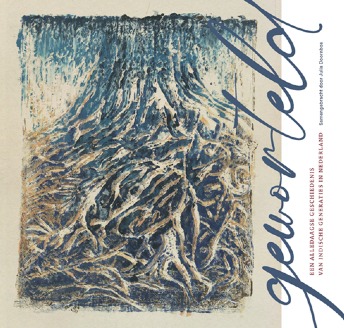Winner 2022 - The Postcolonial Present: co-creating, sharing and remembering life stories of the Indo-European diaspora
Open Research objectives/practices
Objectives:
- Making the outputs of research, including publications, data, software and other research materials freely accessible.
- Using alternative models of publication and peer review to make the dissemination and certification of research faster and more transparent.
- Using open collaborative methods and tools to increase efficiency and widen participation in research.
Practices:
- Using publication under an open licence to communicate research outputs.
- Incorporating open and participatory methods into the design and conduct of research.
- Introducing Open Research concepts and practices into teaching and learning, including teaching about Open Research, and making teaching material openly available.

Introduction
The Open Research practices encompass a research dissemination project, focusing on ‘the postcolonial present’ as experienced by Indo-Europeans (Indonesian-Dutch ancestry) in the Netherlands. In the PhD research, three generations within 21 families were interviewed to study how colonial family histories shape their everyday lives and how these histories are transmitted intergenerationally.
The Open Research practices are a direct result of ‘giving back’ to the research participants and their desire to increase attention for their family histories and experiences. Research dissemination consisted of a written and illustrated booklet, based on the narratives of 14 families (funded by the Enhancing Undergraduate Research, RuG).
We actively engaged participants in creating their chapters, creatively disseminating the study results and empowering them to communicate what they felt was urgent and relevant (i.e what do they want to share/emphasize?). The booklet has been distributed among participants and their network (thus involving them in the distribution too) and is open-access available online.
The research team consisted two staff members and two UCG students, for who this project was a learning experience to familiarise with research in an academic environment and ethical dilemmas related to public dissemination and participatory research.
Motivation
During interviews, participants highlighted that their family histories and experiences received limited attention within Dutch society. While public attention for debates on (anti-)racism and decoloniality is growing, impacts of colonial pasts on the present remain underexplored in Dutch contexts (Den Heijer, 2021). The Open Research practices intended to bringing to light colonial legacies and are a direct result of ‘giving back’ to the research participants and their desire to increase attention for their experiences. This is done by sharing the overall results of the PhD research in an open-access and publicly understandable booklet but also allowing participants to actively contribute to their chapters.
Lessons learned
The project intended to extend the academic outcomes and offered a platform for participants to (re)claim their family histories. Blurring the traditional division between researcher and ‘subject’, this participatory research introduced new challenges concerning power, positionality and research ethics and required critical reflections on the collaborations (Mey & van Hoven, 2019). Especially, as staff, students and research participants were involved.
The interview data involved traumatic experiences and personal documents. During reflexive meetings throughout the research, we discussed various challenges: How to share family histories keeping in mind ethical considerations and participants’ wishes? How do we communicate research plans to participants and engage them? How to manage participants’ expectations? What is an appropriate researcher-participant relation? How to translate and communicate the research findings to a larger non-academic audience? Drawn from the reflections from both researchers and students, we are currently writing a journal article (open-access, International Journal of Social Research Methodology). We have experienced that participatory and Open Research practices require more flexible and adaptive qualities of researchers in comparison to more traditional research processes, due to the engagement with participants and different wishes/demands/understandings. In this article, we encourage critical reflections on power and knowledge production, researchers’ positionality and the relationship between researchers and participants.
URLs, references and further information
Link to final book 'Geworteld':https://pure.rug.nl/ws/portalfiles/portal/212421383/Doornbos_Geworteld_digitaal.pdf
References:
Den Heijer, Henk. (2021). Nederlandse Slavernijverleden: Historische inzichten en het debat nu. Walburg Pers.
Mey, E., & van Hoven, B. (2019). Managing expectations in participatory research involving older people: what’s in it for whom?. International Journal of Social Research Methodology, 22(3), 323-334.
